Thousands upon thousands of people in Texas on any given day are tourists from other parts of the country, and many of these visitors have little to no idea how the legal system functions in the Lone Star State. With that in mind, it is also common for visitors to be arrested for unknowingly violating local, state, or federal laws.
The prospect of facing criminal charges while in Texas for only a brief period of time can be incredibly distressing, not to mention expensive. It is important for any person who has been arrested in Denton County to quickly retain legal counsel for help navigating the legal system and ensuring the most favorable case outcome.
Out-of-State Visitor Arrest Defense Lawyer in Denton, Frisco, Lewisville, and Flower Mound, TX
The team at the Law Offices of Richard C. McConathy has more than a decade of experience in Texas criminal defense law. If you were an out-of-state visitor who was arrested for a criminal offense in Denton, Frisco, Lewisville, Flower Mound, and surrounding areas of Denton County, Texas.
We will work to minimize your involvement with your case so you can get back to your life in your own state or country of residence. You can count on us to fight to have your criminal charges reduced or completely dismissed when you call (940) 222-8004 or contact us online for a consultation.
Common Out-of-State Visitor Offenses in Denton County
Many out-of-state offenses in Denton County are entertainment-related. It is important to remember, especially when traveling domestically, that every state has different laws regarding different issues and you are expected to abide by the laws in the jurisdiction you’re visiting.
Common offenses committed by out-of-state visitors in Denton County include:
- Public Intoxication — A person can be arrested for PI in Texas when intoxicated in a public place to a degree that he or she is a danger to him/herself or others. This includes establishments that have alcohol licensing.
- Driving While Intoxicated (DWI) — Known as DUI in other states, a person commits this offense when operating a motor vehicle while impaired by alcohol, narcotics, marijuana, or prescription drugs. Texas is particularly harsh about cracking down on these cases—so if you’re drinking stay under the legal limit of .08 or use another mode of transportation.
- Possession of Marijuana — Texas does not allow marijuana for medical or recreational purposes. If you are knowingly and intentionally in possession of 2 ounces or less of marijuana, you can be charged with a Class B misdemeanor. Charges for more than 2 ounces can go up to a First-Degree Felony depending on the amount.
- Possession of a Controlled Substance — A controlled substance in Texas includes prescription medications and narcotics such as cocaine, heroin, and LSD. If you carry your medications in a different container than the pharmacy issued, make sure you have a copy of your prescription on hand.
- Disorderly Conduct — Known in other jurisdictions as reckless conduct or disturbing the peace, disorderly conduct covers everything from profane verbal and body language to threats, to fights. Additionally, someone who discharges a gun in celebration of a holiday can be arrested for disorderly conduct.
- Shoplifting — This is any instance when a person takes another person’s property without his or her effective consent, including failure to pay. Depending on the value of the goods stolen you could be facing anywhere from a Class C Misdemeanor to a State Jail Felony or harsher. Many of these offenses don’t have to take place if the alleged offender would double-check their person and shopping bags before leaving the store.
- Weapons or Firearms Offense — The Second Amendment to the United States Constitution and Section 23 of Article 1 of the Texas Constitution both protect the right of people to keep and bear arms. Gun rights, however, are not unlimited and people can face criminal charges for possessing certain prohibited weapons or carrying firearms in prohibited places. Many weapons and firearms crimes carry steep penalties, and alleged offenders can also see criminal charges for other offenses enhanced if they are accused of possessing a weapon or firearm during the commission of the alleged offenses. Convictions not only can result in possible incarceration and fines, but alleged offenders can also lose their right to possess a weapon or firearm again.
- Property Crimes — Stealing or damaging another party’s property in Texas usually constitutes a property crime. Depending on the amount of damage caused by an alleged offender, property crimes may be misdemeanor or felony offenses. Some people accused of property crimes either did not intend to cause any damage or believed that they had some kind of legal ownership claim over the property in question.
- Prostitution/Solicitation — Allegations of prostitution or solicitation in the Dallas / Fort Worth Metroplex often arise through elaborate sting operations. These operations, which are typically conducted by Texas law enforcement, target adult entertainment clubs, massage parlors, escort services and other adult establishments. Criminal charges for prostitution or solicitation can result in serious penalties and repercussions, including jail or prison sentences, possible sex offender registration requirements, public embarrassment, a criminal record and /or fines.
- Sex Crimes — Being accused of any criminal offense that is sexual in nature can have a dramatic impact on the life of any alleged offender. Despite the presumption of innocence that every person is entitled to, individuals accused of sex crimes can often feel as though they have lost the support of friends, family, and co-workers.
- Traffic Offenses — After a person has been pulled over for an alleged traffic violation in Texas, a police officer may issue a ticket that can simply be paid to resolve the matter. While many people opt to just pay the fine for a citation, it is important to understand that certain traffic offenses can result in possible increases in insurance rates, surcharges, and even a suspension of a person’s driver’s license. Certain alleged traffic violations can result in misdemeanor or even felony criminal charges that require alleged offenders to appear in court.
Texas Consequences for Offenses Committed in Denton
While some states specify punishments for each type of offense within the code, Texas sets forth standard consequences for each class of offense. The following are the classes of misdemeanors and felonies and their corresponding standard maximum punishment:
Class C Misdemeanor
- $500 fine
Class B Misdemeanor
- $2,000 fine
- 180 days in jail
Class A Misdemeanor
- $4,000 fine
- One year in jail
State Jail Felony
- $10,000 fine
- Two years in state jail
Third-Degree Felony
- $10,000 fine
- 10 years in prison
Second-Degree Felony
- $10,000 fine
- 20 years in prison
First-Degree Felony
- $10,000 fine
- 99 years or life in prison
Capital Felony
- Life in prison without parole
- Death penalty
In addition to the standard punishments, state districts, counties, and municipalities may have their own standards or amendments that could mitigate or increase the punishments in your case. Navigating these standards is tricky – an experienced Denton criminal defense attorney could help you achieve a more favorable outcome.

Denton County Out-of-State Visitor Arrest Resources
They messed with Texas: Celebrities busted in the Lone Star State — Even famous people may get into trouble in Texas, as this My San Antonio article proves. Celebrities listed here include Wiz Khalifa, Randy Travis, Daryl Hannah, Fiona Apple, Snoop Dogg, Willi Nelson, Armie Hammer, Nelly, Chace Crawford, Matthew McConaughey, and Vince Neil. There are several others listed here.
Evers v. State, 576 S.W.2d 46 (1978) — Michael S. Evers was convicted of unlawfully carrying a handgun. Punishment was assessed at sixty days in jail and a fine of $500. Evers asserted seven grounds of error, including claims of illegal search and seizure. On May 13, 1976, Dallas Police Officers Fambrough and Gary saw Evers operating a car on Harry Hines Boulevard in Dallas, Texas. Observing tape on the windshield covering the safety sticker area, the officers stopped the appellant to investigate a “possible violation of the safety sticker.” Upon investigation, Officer Fambrough discovered that the tape concealed an expired Louisiana inspection (safety) sticker. Officer Fambrough issued a written citation for “expired inspection sticker” and, upon appellant’s written promise to appear, permitted appellant to drive away. Accelerating quickly, appellant’s vehicle threw mud and gravel on Officer Fambrough and the police car before getting back onto the roadway and “squealing the tires” on the pavement. Officer Fambrough pursued the appellant, stopping him a second time. Following the second stop, Officer Fambrough made a custodial arrest of the appellant for “improper start from a parked position.” An inventory of appellant’s car at the scene produced a handgun from an unlocked briefcase in the front passenger’s seat. Evers’ motion to suppress the handgun as evidence was overruled and at trial, the handgun was admitted over objection. Evers testified and admitted possession of the handgun, but claimed the “traveler” and “business” exemptions. Court of Criminal Appeals of Texas, Panel No. 1 ultimately affirmed the lower court’s ruling.
Find A Denton County Defense Attorney for Criminal Charges | Law Offices of Richard C. McConathy
There are many benefits to individual states’ rights. However, one of the downsides is you may be in violation of a law you were unaware of and get arrested while traveling.
If you are an out-of-state or international guest and have been charged with a criminal offense in Dallas County, Tarrant County, Denton County, Collin County, Wise County, Kaufman County, Parker County, Grayson County, Rockwall County, Johnson County, Ellis County or the surrounding areas, trust your case to an experienced Texas firm that knows the local standard of law. Call the Law Offices of Richard C. McConathy or contact us online today at (940) 222-8004 for your free consultation.


